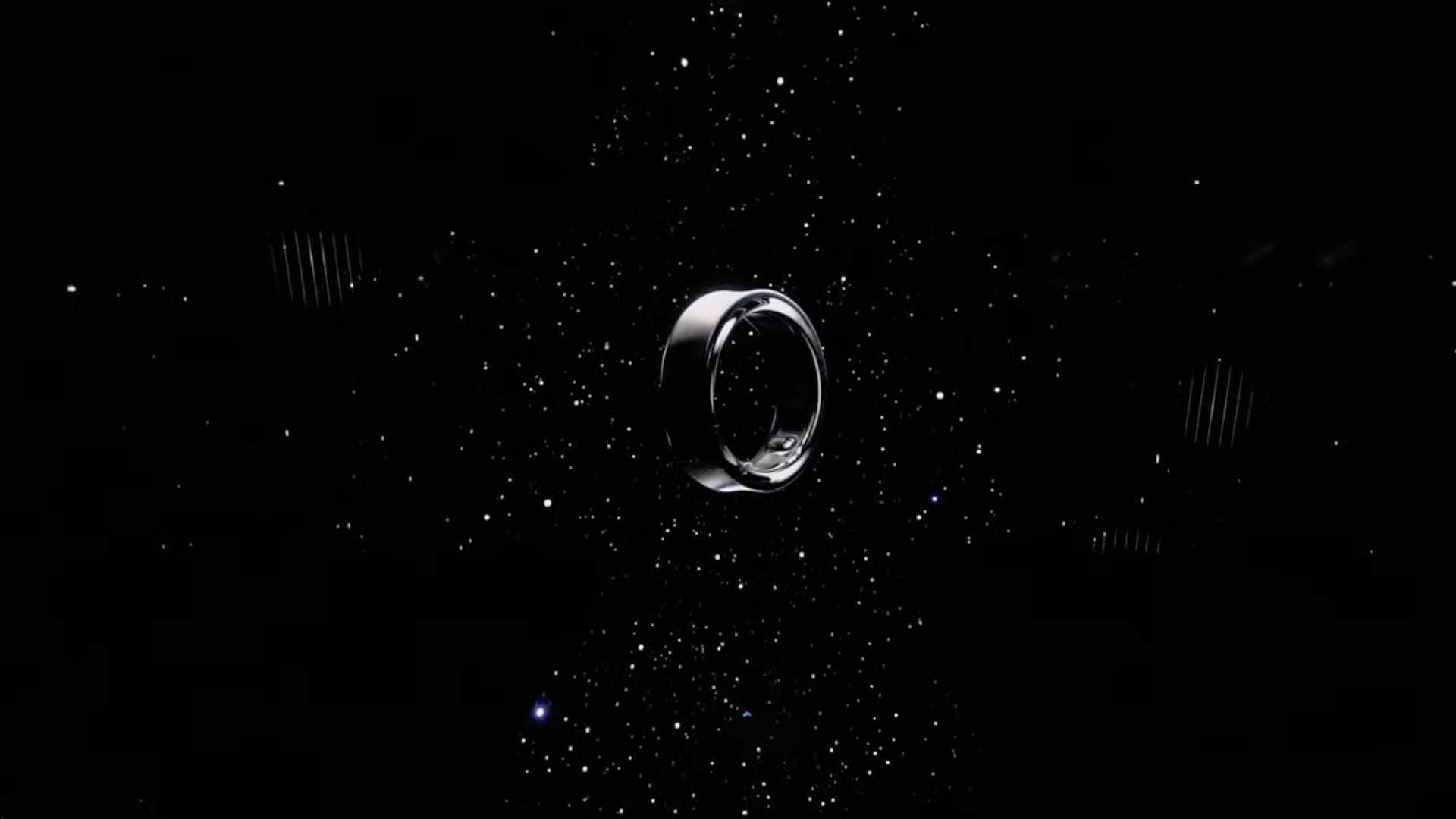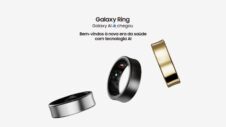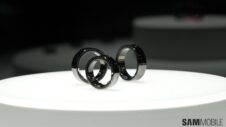There were rumors for over a year now that Samsung was working on a smart ring but in the absence of any credible leaks, many felt that those rumors wouldn't amount to anything. The company itself certainly kept mum about any such product. It didn't give away anything that may suggest it was developing a smart ring for health and fitness tracking.
Samsung finally lifted the veil towards the very end of its Galaxy S24 Unpacked event last week. The company not only confirmed that the Galaxy Ring exists but also showed off a teaser image. It didn't reveal a lot of details, only saying that more information would be shared down the line and that the device would be released later this year.
As expected, there's considerable interest in the Galaxy Ring, as people are curious about how Samsung will perform a as a new entrant in this product category. Smart rings have been around for quite some time now. The Oura Ring, now in its third generation and by far the most widely known product in this segment, first came out in 2015. The Ultrahuman Ring is another incumbent, albeit a more recent one, that Samsung will be going up against.
Companies like Oura, Ultrahuman, and others that make smart rings, would understandably be fearful of what Samsung's entry into the market means for their long-term prospects. For starters, Samsung has significantly deeper pockets, wider talent pool, and manufacturing finesse than all of these companies. It can afford to throw money at the smart ring problem for far longer than any of them can, even if some of these incumbents try to leverage their IP and prevent the Galaxy Ring's rise through patent infringement lawsuits.
Samsung also has more pricing power compared to its rivals in this segment. For example, the Oura Ring starts at $299 while the Ultrahuman Ring Air starts at $349. Samsung could try and undercut them on price to gain market share right now and defer higher margins for future iterations of the product. Granted, that's not something we've seen Samsung do often even for smartphones, but that option remains for Samsung to exercise at a time of its choosing.
The company can also utilize some crafty ways of getting the Galaxy Ring out to as many people as possible as quickly as possible. For example, it could either give the smart ring out as a pre-order incentive to customers who purchase premium phones, or offer it at a discounted rate in a bundle with other Galaxy devices. This option doesn't exist for companies that are primarily making smart rings only.
The ring is just hardware that collects various forms of health and fitness data. It requires a robust software platform where users can access the data and educate themselves about their sleep cycles, blood oxygen levels, heart rate, etc. These incumbents have their own platforms and they'll be going up against Samsung Health.
Samsung Health has been around for a very long time. Its Samsung's dedicated health and wellness platform that's available across its entire ecosystem of products, enabling you to access data and functionality that helps you lead a healthier and more active lifestyle. The company has made considerable improvements to Samsung Health recently, including the addition of new features such as medication tracking, sleep coaching, skin temperature-based menstruation cycle tracking, and more.
Developing and maintaining these features requires a lot of costly research. Not every smart ring company can keep up with this expense by simply relying on one-time hardware sales. That's why Oura now charges a $5.99 subscription fee from users to access advanced data, on top of the at least $299 they have to pay for one of its rings. A Galaxy Ring user wouldn't have to pay such a fee because Samsung Health is free and Samsung makes a lot more money from many different sources to support its ongoing investments in the platform.
Samsung's impressive global distribution network also means that the Galaxy Ring can be sold across the globe seamlessly without any of the supply chain challenges that smaller companies operating in this space will have to navigate. Its robust sourcing and manufacturing supply chains will ensure minimal disruption in the production of the Galaxy Ring.
The incumbent smart ring manufacturers can spin Samsung's entry into the segment as validation of what they've been trying to achieve for the past few years. They can argue that this shows they've found value that's hard for even Samsung to resist now, and that competition will ultimately be better for consumers. That may be true, but it doesn't change the fact that having a behemoth like Samsung breathing down your neck certainly sparks fear.
Being acquired by Samsung is one outcome that some of these companies can hope for. The Korean conglomerate certainly has enough cash in the bank to acquire these companies several times over. Will it? The fact that it never seemed Samsung wanted to do that in the first place suggests that even this may not be an option.
Samsung felt content in going at the smart ring problem on its own, developing everything from scratch and resisting the temptation to acquire an existing company and launch a slightly modified product. Perhaps the company may feel the need to make acquisitions if one of these companies ends up being too much of a nuisance with patent infringement claims. At some point, it may make more financial sense for Samsung to buy all of their IP than to waste money and time fighting them in court.
One saving grace that the likes of Oura and Ultrahuman can count on is that the Galaxy Ring is likely going to be limited to Samsung's ecosystem. It's possible that Samsung may not make the Galaxy Ring compatible with the iPhone. The other companies have the benefit of being the only other option for iPhone owners who want a smart ring, but what happens when Apple ultimately decides to make one? I leave that up to your imagination.







